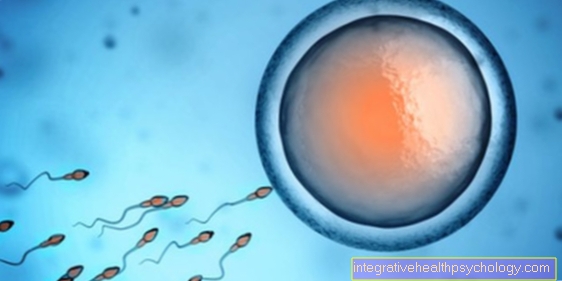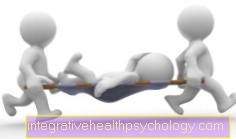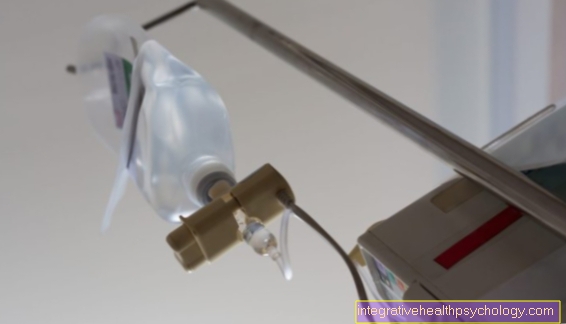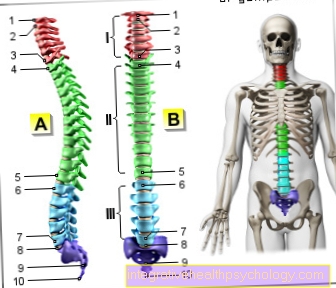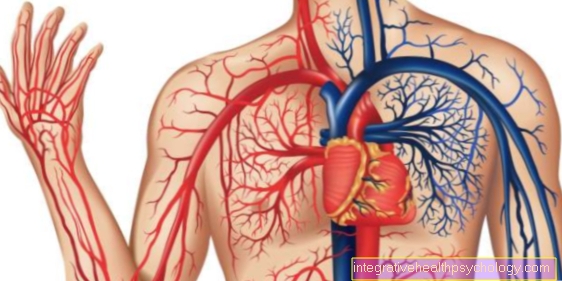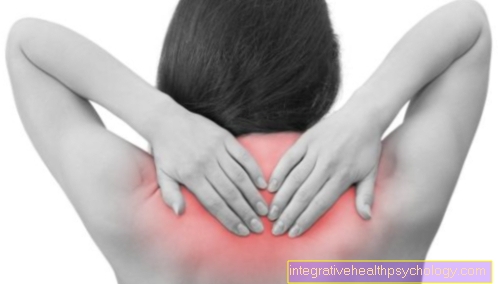Psychosomatic back pain
What is psychosomatic back pain?
Psychosomatics is a medical sub-area that deals with physical complaints that can be traced back to psychological factors, among other things. Nowadays, mental illnesses are increasing rapidly due to stressful situations, pressure situations in everyday life, depression, anxiety and panic states and numerous other factors.
Connections between physical complaints, so-called "somatic" diseases and psychological influences have been proven. The physical symptoms are by no means just an imagination, but a serious and often measurable condition, the cause of which is, among other things, the psyche. Psychosomatic back pain can take several forms. In most cases, back pain occurs due to sedentary lifestyle, herniated discs, muscle tension, or other physical illnesses at one point in time.
Due to psychological circumstances, the pain can become chronic as psychosomatic back pain, although there is no physical reason for the pain later. People with depressive symptoms are up to twice as likely to suffer from chronic back pain as healthy people. With around 15-20% chronic back pain in the whole of society, psychosomatic back pain is an extremely common and important disease.
Also read the article on the topic: Can you imagine pain?

Causes of Psychosomatic Back Pain
The psychological causes that can subsequently manifest as back pain are numerous. The most common diseases and causes in this context are depression, anxiety and panic states, psychologically stressful stressful situations and social instability. The main problem with these clinical pictures lies in today's social structures and the everyday world. Increasingly higher demands, stressful social situations and pressure to perform in work and private life contrast with a lack of time, lack of drive, a lack of exercise and permanent stress.
The psychological pressure can only be insufficiently discharged and the mental health is moving more and more into the background in today's society. In the clinical picture of psychosomatic back pain, orthopedic problems often arise due to a sedentary lifestyle, rigid office work, muscle tension and weak muscles in the back. These are often the first cause of back pain.
The psychological pressure that builds up is then only the last factor that keeps the pain going and releases itself as a reaction to a stressful everyday life. Mental stress can be traced back to one-off, drastic experiences such as a death or a separation instead of an accumulation of stressful situations.
Find out more about the topic: Psychosomatics
Concomitant symptoms
The symptoms of mental illnesses as well as somatic complications can be numerous. Mental symptoms that are in the foreground in psychosomatic back pain are listlessness, depressed mood, negative thoughts, restricted performance, fear of social situations, racing heart, sweating, grief, suicidal thoughts and many more. These can all be accompanying symptoms of triggering mental illnesses, but they do not have to occur together or at the same time.
Often psychological complaints can also arise unnoticed and run completely symptom-free or suppressed by stress. Typical somatic diseases and symptoms that can be linked to psychological complaints are functional disorders of the cardiovascular system, pain all over the body, intestinal and digestive problems, obesity or anorexia, bulimia, breathing problems, incontinence, tinnitus or itching. This is only a selection of psychosomatic symptoms.
If there is already psychosomatic back pain, the probability of one of these clinical pictures is also increased. However, by no means does one of these symptoms have to appear in addition to back pain.
Psychosomatic back pain and abdominal pain
Abdominal pain is a common and very unspecific symptom. In most cases, it is caused by digestive problems and other temporary intestinal disorders. In connection with psychosomatic back pain, however, further psychosomatic diseases must be considered in the case of long-term and therapy-resistant abdominal pain.
Having a psychosomatic illness increases the likelihood of developing irritable bowel syndrome or an eating disorder. Irritable bowel syndrome can be accompanied by gas, abdominal pain, and digestive problems. Similar to psychosomatic back pain, irritable bowel syndrome can arise due to various somatic diseases and can be sustained through stress and psychological conflicts.
Before a diagnosis of a psychosomatic digestive disorder is made, however, all somatic causes must be ruled out with certainty.
Read more on the topic: Abdominal pain from psyche
Diagnosing psychosomatic back pain
In the diagnosis of psychosomatic back pain, the first priority is to safely rule out a somatic (physical) cause. This should include physical exams, imaging, and other diagnostic tools. Possible somatic causes of back pain can be the bulging disc, a herniated disc, muscle tension, vertebral body injuries or blockages of the vertebrae and back muscles. Only when these causes have been ruled out can a psychological cause of the somatic complaints be considered.
The subsequent diagnosis takes place on the basis of longer discussions and psychotherapeutic advice in order to be able to uncover possible causes. Stressful situations, emotional conflicts and other psychological causes can be discovered, analyzed and treated. In diagnostics, it should be noted that lengthy and extensive diagnostics of somatic causes can increase psychological stress. After ruling out a herniated disc, for example, there should be no permanent follow-up examinations in order not to increase the symptoms.
You might also be interested in this topic: Back pain diagnosis
Psychosomatic back pain or a herniated disc?
At the beginning of the psychosomatic diagnosis, it goes without saying that a potential somatic cause of the back pain must be reliably excluded. Chronic back pain, especially in the lumbar spine, can in many cases be caused by disc problems. A herniated disc can occur and cause severe pain not only in older patients, but also in young people.
To rule out the herniated disc, a CT or MRT examination must be carried out, on which any protrusions or tears in the intervertebral discs can be identified. If there is a herniated disc, therapeutic steps must be initiated immediately, including surgery in rare cases. However, if no herniated disc can be seen in the radiological image, there may be a psychosomatic cause behind the symptoms.
In the treatment of chronic and psychosomatic pain, it is important that the somatic diagnosis of the intervertebral discs is not unnecessarily repeated if there is no reason for a new herniated disc. Repeated, unnecessary diagnosis can worsen the pain and exacerbate psychological conflicts.
Read more on the topic: Diagnosing a herniated disc
Therapy for psychosomatic back pain
In terms of therapy, there are many different approaches to alleviating acute symptoms, stabilizing mental health or primarily preventing psychosomatic illnesses in the clinical picture of psychosomatic back pain. The prevention of psychological complaints in everyday life is also an important factor in acute therapy. Important approaches to stay relaxed in everyday life and not to accumulate stress are to pause often, to listen to your own body, to incorporate conscious rest periods during the day Talking about difficult situations at an early stage and avoiding stressful situations if possible.
At the beginning of the therapy, the focus is on the person concerned to understand, understand and accept the connection between the psychological stress and the somatic complaints. The conflicts should then be thought through, analyzed and dealt with under professional guidance. It is important to uncover the exact pain triggers, to discard avoidance behavior and to consciously tackle the pain. In the case of psychosomatic back pain, accompanying exercise therapies are essential. Even if the cause of back pain is psychosomatic, exercise, muscle building, muscle relaxation and yoga are important aids to strengthen the back, as well as to prevent stress and tension in the muscles.
Also read the article on the topic: Exercises for back pain
Meaning of psychosomatic back pain
The significance of a psychosomatic illness is different for each person affected. The back pain can appear as an acute sign of momentary psychological stress, but also as a chronic consequence of longstanding psychological complaints. In any case, the pain is to be understood as an expression and discharge of a stressed psyche and can only be treated causally if the psychological stress is accepted and treated as the cause.
In contrast to somatic symptoms, mental illnesses have fewer opportunities to make themselves felt in the event of tension, overwork and stress. The mood can also remain unchanged despite considerable psychological stress. It is therefore essential for those not affected to pay attention to their own mental health and to allow themselves sufficient rest in everyday life so that stress does not build up and can discharge as a somatic symptom.
Duration of psychosomatic back pain
The duration of psychosomatic back pain cannot be determined across the board. Unfortunately, these complaints are a clinical picture that often becomes chronic and can be very protracted. Acute back complaints following tension or herniated discs can often subside within a few weeks with suitable physiotherapy.
However, back pain that arises due to a psychological conflict can be difficult to treat and persist even with good therapy. One speaks of a chronic course after 6 months. In order to control chronic pain, causal therapy alone is often no longer sufficient. For these long courses, multimodal pain therapies must be used that treat various symptoms and causes.
Find out more about the topic: Chronic back pain therapy - what works best?


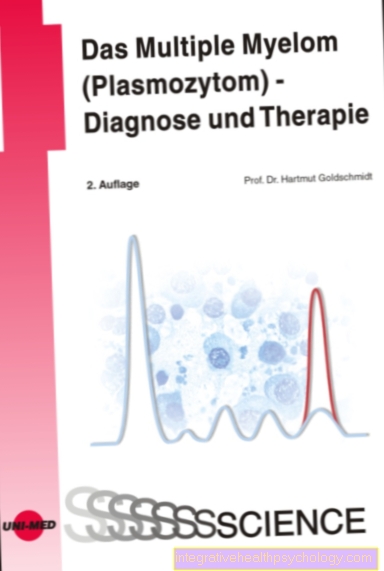



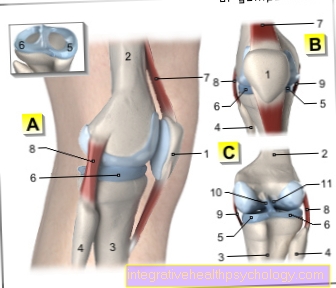

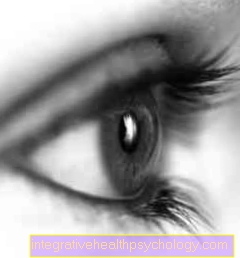




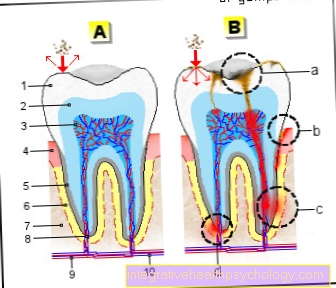


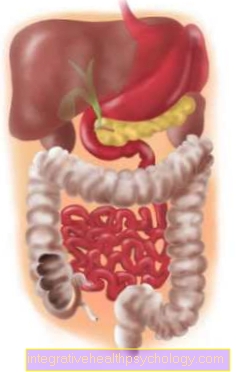

-de-quervain.jpg)

